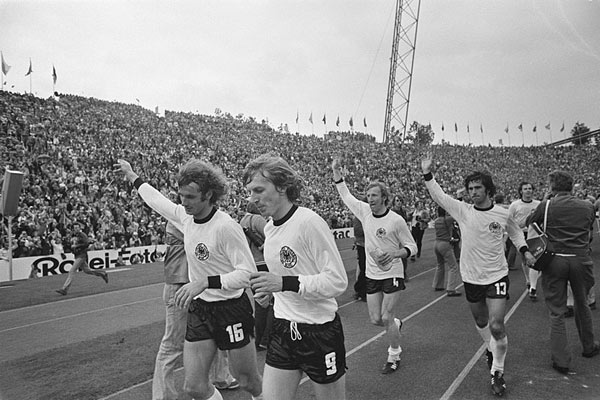
When you grow up in the North East of England, you can’t really escape the notion that to millions, maybe billions of people around the world, football is a lot more than a game.
A person’s football team is a very real part of their identity, something which affects and reflects what they see as important parts of their heritage.
Living in Liverpool during the culmination of the Hillsborough inquests hammered home to me just how important football clubs are in bolstering communities and transmitting regional identities.
When dissertation season came around, this was something I was keen to do some research into. Of course, this still left me with a fairly wide research area, so I decided to try and find something fun. Anybody who is aware of the work of Jürgen Norbert Klopp knows that German football is what the cool kids watch, so that’s where I took my research.
The power of football
It didn’t take me long to realise that football has more power than I’d ever realised. Looking at West Germany’s triumph in the 1954 World Cup, I found plenty of evidence to suggest that the final was one of the most significant events in Germany’s immediate post-war history, what some historians have called ‘the true birth of the Federal Republic’.
For the first time in almost 40 years, people could be proud of being German. They weren’t thinking about war guilt or the crimes of fascism, they were just happy to see eleven men who looked like them and spoke like them kick a ball into a net more often than some Hungarians.
East Germans celebrated a West German victory like it was their own, because they still just felt German. In players like Fritz Walter and Helmut Rahn, Germany had heroes again. That’s important.
The commentary in this video of the 1954 World Cup final – the ‘Miracle of Bern’ – is the stuff of legend in Germany
Empowering young Germans to express themselves
'Der Spiegel' half-joked at the time that Germany had finally discovered “the sole auspicious meaning and true purpose of their national existence”. It almost comes as a surprise that it took them 20 years to win the thing again.
By 1974, West Germany had changed a lot. So had football – and the latter told me a lot about the former. Individualist young Germans felt a lot more comfortable expressing themselves through their appearance, so footballers had big hair to go with their short shorts and questionable moustaches.
They almost didn’t play in the tournament at all, because by 1974 West Germany was a capitalist’s utopia and captain Franz Beckenbauer threatened a boycott if the squad didn’t get paid a fair sum for winning.
East Germans were no longer their brothers but competitive cousins, who enjoyed bringing them down a peg by beating West Germany early in the tournament but were pleased to see them go on to lift the title.
Football is the world’s biggest sport, and a country’s footballing history can tell you an awful lot; much more than the few points I’ve touched on here. Tell your mum that when she asks you to turn the football off this summer.
Discover more
- Like Sam, you can study History at the University of Liverpool